Indonesian Vice President K.H. Ma’ruf Amin said sharia economy which is getting stronger has provided support for national economic stability because it has been tested in going through economic cycles.
“The Sharia economy can also be relied on to create a balance between growth and equity because it depends on the real sector so that it plays an important role in securing national supply,” said the Vice President on Thursday in Jakarta.
He also said that the distribution of sharia social funds to the public has become one of the important pillars to maintain people’s purchasing power and eradicate poverty and socio-economic inequality.
For this reason, the Vice President hopes that Islamic economic empowerment, especially those based on Islamic boarding schools, will continue to be developed in the country because apart from increasing the supply of national food and commodities, the pesantren economy also has the potential to penetrate the export market.
Also Read: Be Careful of the Trap of Deploying Peacekeeping Forces to Gaza
“All Islamic boarding schools in Indonesia must continue to be encouraged to promote activities and learning in the field of Islamic economics and finance in their curriculum,” said the Vice President.
Thus, the vice president hopes that the strengthening of the Indonesian Islamic economy and finance will continue to develop from the bottom to the top, from micro businesses to large businesses.
Four Important Messages
The Vice President conveyed four important messages to all stakeholders to develop the Islamic economy and finance in order to achieve various targets that will have a multiplier effect.
Also Read: The Forty-Four-Days of Glory: Azerbaijan’s Struggle for Justice and Peace
First, the Vice President advised that the acceleration of strengthening the Global Halal Hub (GHH) as a hamzah washal center (off-taker) be carried out continuously so that the integration of MSME actors and other stakeholders in a halal ecosystem will facilitate the downstream process which will improve the quality and competitiveness of products and services.
“The role of entrepreneurs as off-takers needs to be maximized so that agricultural, plantation and marine products can penetrate the global market. The ability to downstream natural resources is a form of our responsibility in managing God’s gifts,” he explained.
Second, the halal value chain (HVC) ecosystem needs to be strengthened by increasing the integration of business models and infrastructure from upstream to downstream, as well as ensuring end-to-end processes that are able to produce high-quality local products.
“The strengthening of the HVC ecosystem is carried out by strengthening the support of the financial industry, banking, insurance, logistics, and other sharia sectors,” he said.
Also Read: Palestine Solidarity Month: A Collective Movement for Al-Aqsa and Palestine’s Freedom
Third, the Vice President asked for Muslim Friendly Tourism (PRM) in the country to continue to be developed because the contribution of the tourism sector to GDP formation is expected to continue to increase, along with the high potential for visits by world Muslim tourists.
“In addition to preparing additional infrastructure and services for amenities, attractions and accessibility, the world-class PRM sector must also be supported by strengthening regulations, increasing destination competitiveness, and the creation and innovation of local halal products,” he said.
Fourth, the Vice President hopes that there will be an increase in human resources education and expertise as well as the availability of a sharia economic HR Roadmap. This Roadmap is to support the development of the halal industry in Indonesia that is increasingly measurable, systematic, and integrated, so that it can develop faster and faster.
“All parties are expected to continue to participate in improving literacy and creating a conducive environment for economic development and Islamic finance,” he hoped.
Also Read: Hassan al-Turabi: A Controversial Thinker from Sudan
In addition, the Vice President appreciated the implementation of ISEF for the last 9 years as a very valuable contribution from Bank Indonesia in the effort to advance the Islamic economy in Indonesia.
“The 9th ISEF strengthens the opportunity to create space for collaboration, invites all parties to move faster to realize Indonesia as the center of the world sharia economy, as well as strengthen this nation’s contribution to global recovery efforts through inclusive economic development,” he concluded.
Previously, Bank Indonesia Governor Perry Warjiyo reported that ISEF 2022 took the theme “Recover Together Recover Stronger: Optimizing Sharia Economy and Finance for Inclusive Recovery”.
“This theme resonates with the theme of the Indonesian G20 Presidency as a form of all of us efforts to collaborate in developing Indonesia’s Islamic economy and finance as a new stream of Indonesian economy and finance, and this also shows that Islamic economy and finance play a very strong role in supporting overall economic recovery faster and stronger, as well as to achieve our vision as the center of the global sharia economy,” he explained.
Also Read: Who Exactly is the RSF Group Shaking Sudan?
In addition, ISEF 2022 activities have three main topics, namely Economic Inclusion, Halal and Green Lifestyle, and Digitalization, with a series of national and international activities but still populist, which will be held a week from 5 to 9 October 2022.
“Some of the activities in ISEF 2022 include the HEBITREN National Working Meeting, expansion of halal certification, INHALIFE halal lifestyle, International Hajj Conference, and international tourism forums. In the field of Islamic finance, we also collaborate with international institutions including the Islamic Development Bank, Islamic Finance Supervisory Board by holding a Seminar on 10 Year Framework Strategy on Islamic Finance Development, International Conference on Zakat and Waqf, and International Fiqh Conference,” he explained.
Then, Perry said, the implementation of ISEF this time had started with a series of Road to ISEF 2022 activities since last April, through the Islamic Financial Economics Festival (FESyar) which was held three times at the regional level, namely FESyar for Eastern Indonesia centered in South Sulawesi, FESyar for the region. Sumatra in Aceh, and FESyar in Java in East Java.
“Alhamdulillah, the series of national and international webinars, business matching, international showcases, and exhibitions were successful. The series of FESyar activities was attended by more than 372.9 thousand participants with a business turnover of Rp9.43 trillion,” he said.
Also Read: The Two-State Solution (Palestine–Israel) in Historical Perspective
The event was attended by the Minister of Cooperatives and SMEs Teten Masduki, Deputy Minister of Agriculture Harvick Hasnul Qolbi, Ambassadors of Friendly Countries and Leaders of International Institutions, Regional Heads, Board of Governors, and all Heads of 46 Bank Indonesia Offices, Leaders of Islamic Boarding Schools, Organizations and Leaders Society, as well as the Leaders of Islamic Banking and Financial Institutions.(T/ri/RE1)
Mi’raj News Agency (MINA)
Also Read: Enchanted by K-Dramas, Dragged into Slander: Time for Muslims to Rise!






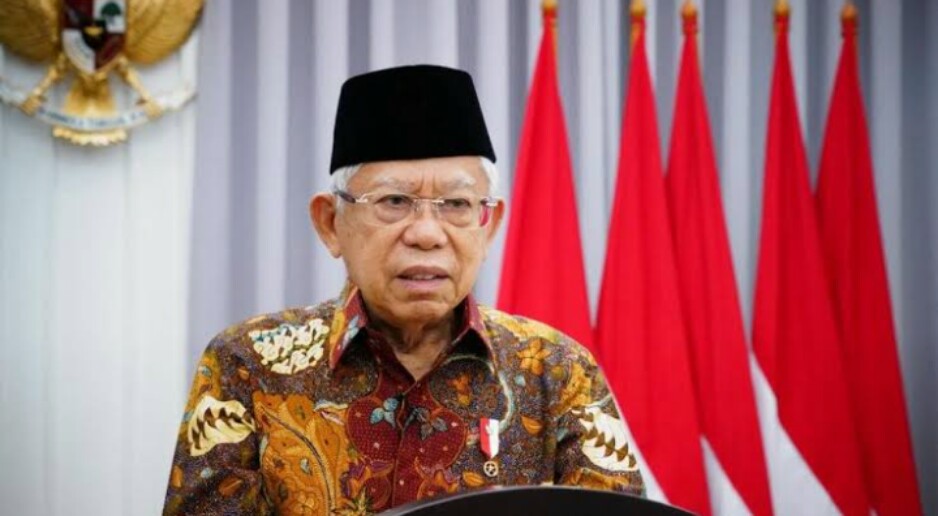





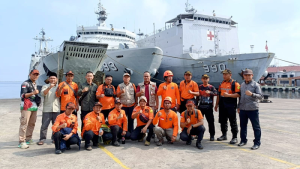
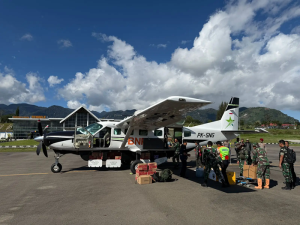
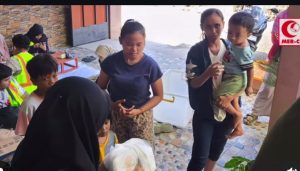
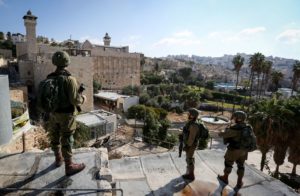

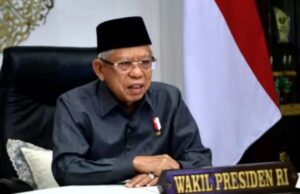
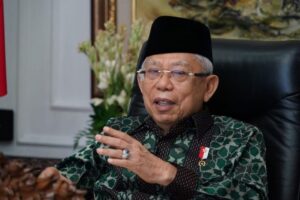
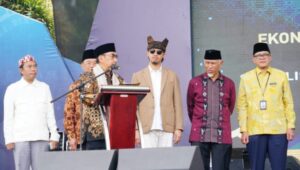
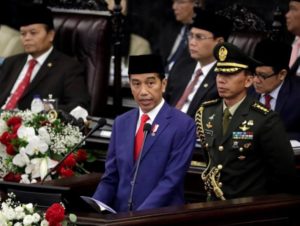








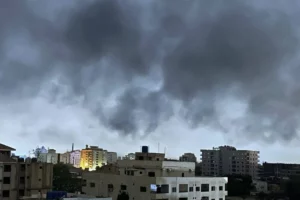




 Mina Indonesia
Mina Indonesia Mina Arabic
Mina Arabic